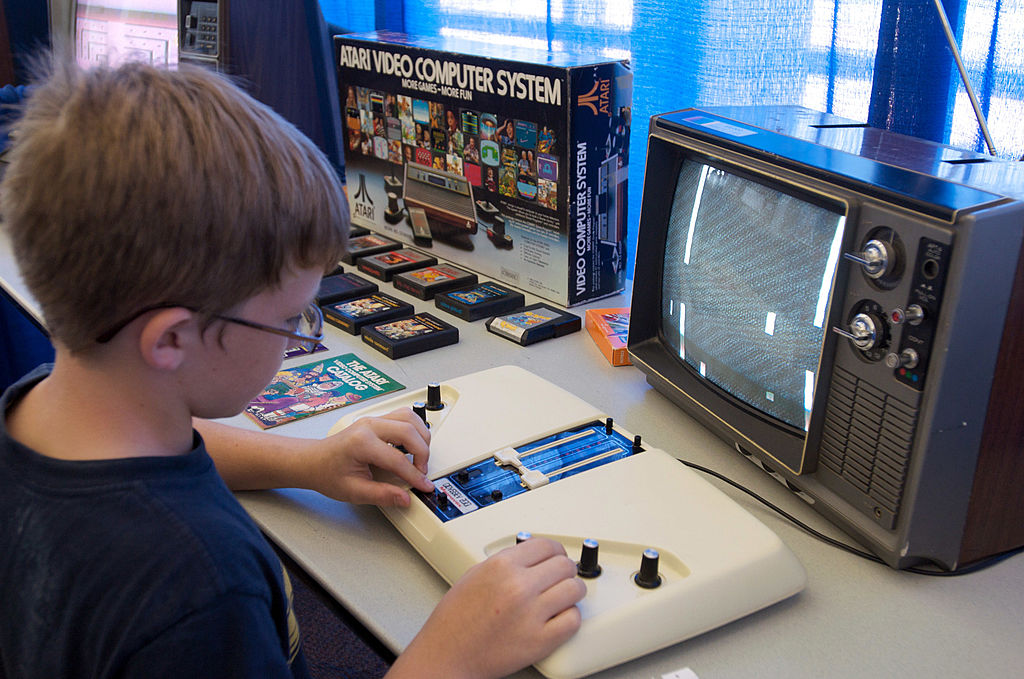The World Video Game Hall of Fame has announced the 12 finalists for this year's Hall of Fame induction, spanning 40 years of gaming history.
From the classic arcade hit Asteroids to the immersive world of Guitar Hero, the finalists showcase the evolution and diversity of the gaming industry.
(Photo: David Greedy/Getty Images))
From asteroids to metroids
One of the finalists is Asteroids, released by Atari in 1979. The game attracted players with its challenging gameplay and vivid graphics. Its popularity skyrocketed, quickly becoming Atari's best-selling arcade game, and later reaching millions of households with console versions.
Elite, developed in the UK and released in 1984, is another finalist known for its innovative 3D graphics and open-world concept. It laid the foundation for a new generation of games and influenced classic games like Grand Theft Auto 3 and Eve Online.
Introduced in 2005, Guitar Hero allowed players to unleash their inner rock star while strumming along to popular music with a plastic guitar controller. The game's wide appeal and social gameplay spawned a series of sequels and spin-offs, and it grossed over $2 billion.
Nintendo's Metroid, released in 1986, was also recognized as one of the finalists for transporting players to a futuristic world full of adventure and mystery. With its blend of platforming and non-linear storytelling, Metroid made a lasting impact on the gaming world, inspiring a series that has sold over 20 million copies worldwide.
Mist, Neopets, Resident Evil, SimCity
One of the finalists is Myst, released in 1993. The game captivated players with its captivating puzzles and immersive environment. Taking advantage of his early CD-ROM technology, Myst became his best-selling computer game of the 1990s, selling over 6 million copies.
It also included Neopets, a browser-based game introduced in 1999. It offered players a vibrant virtual world where they could take care of pets, explore the land, and interact with other users. At its peak, Neopets boasted 25 million active users and served as a pioneering example of online gaming.
Resident Evil, released by Capcom in 1996, popularized the survival horror genre and captivated players with its tense atmosphere and mature storytelling. Since then, the series has spawned a multi-billion dollar media empire that includes movies and merchandise.
Launched by Maxis in 1989, SimCity allows players to build and manage their own virtual cities based on real-world urban design principles. The game's success spawned numerous sequels and spin-offs, and influenced the city-building simulation genre.
Also read: #TechCEO: How Min-Liang Tan turned Razer into the gaming industry's most iconic brand
Japanese game becomes Hall of Fame finalist
The finalists also included Tokimeki Memorial. Konami released this game in his 1994 and revolutionized his dating simulator genre with an engaging story and deep gameplay mechanics. According to the Strong National Museum of Play, Tokimeki Memorial was never localized outside of Japan, but it left a lasting impact on game design around the world.
Introduced in 1999, Tony Hawk's Pro Skater brought the thrill of skateboarding to living rooms around the world. The game became a cultural phenomenon, spawning sequels and generating billions of dollars in sales.
Another finalist is Ultima: The First Age of Darkness, released in 1981. This game helped define the role-playing genre with its expansive world and rich storytelling. The game's legacy lives on in sequels and many titles inspired by it, shaping the future of RPGs.
The final finalist is You Don't Know Jack, introduced in 1995. The show reimagined the game show format for home audiences, combining witty questions and humor with multiplayer party games. The series continues to grow with sequels and spin-offs produced on various platforms.
Related article: Super Mario Bros. movie sequel confirmed: what to expect
ⓒ 2024 TECHTIMES.com All rights reserved. Please do not reproduce without permission.


